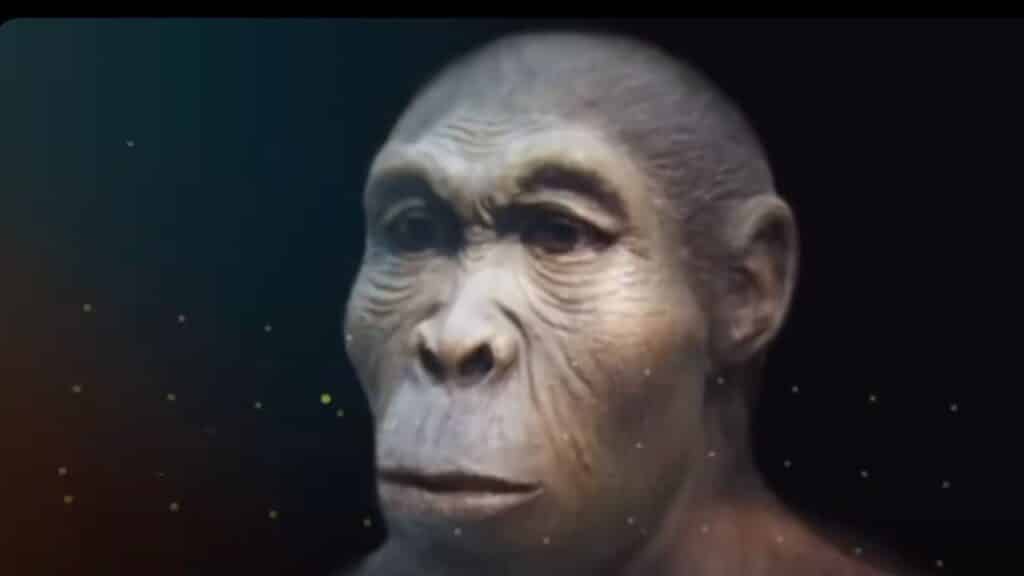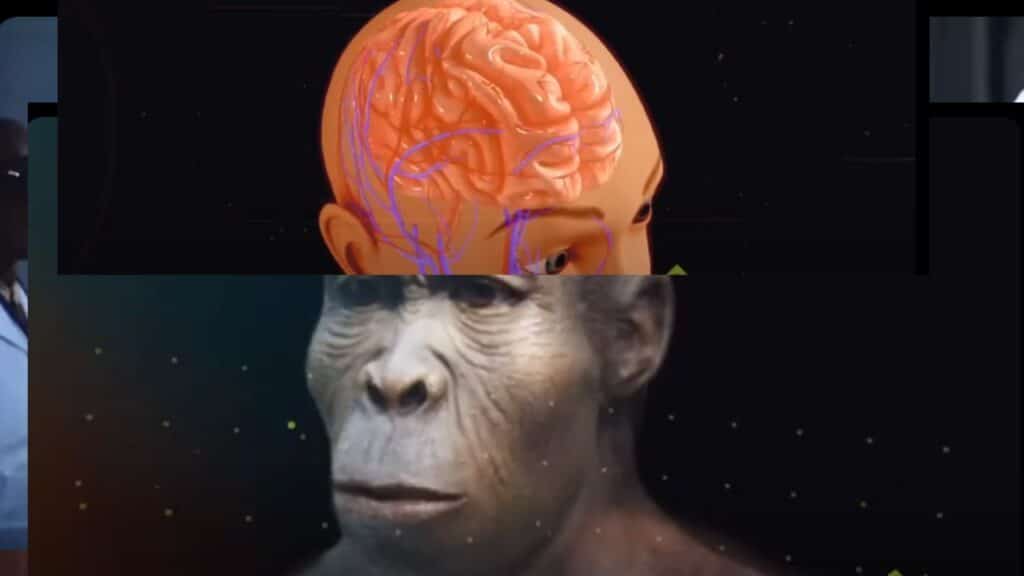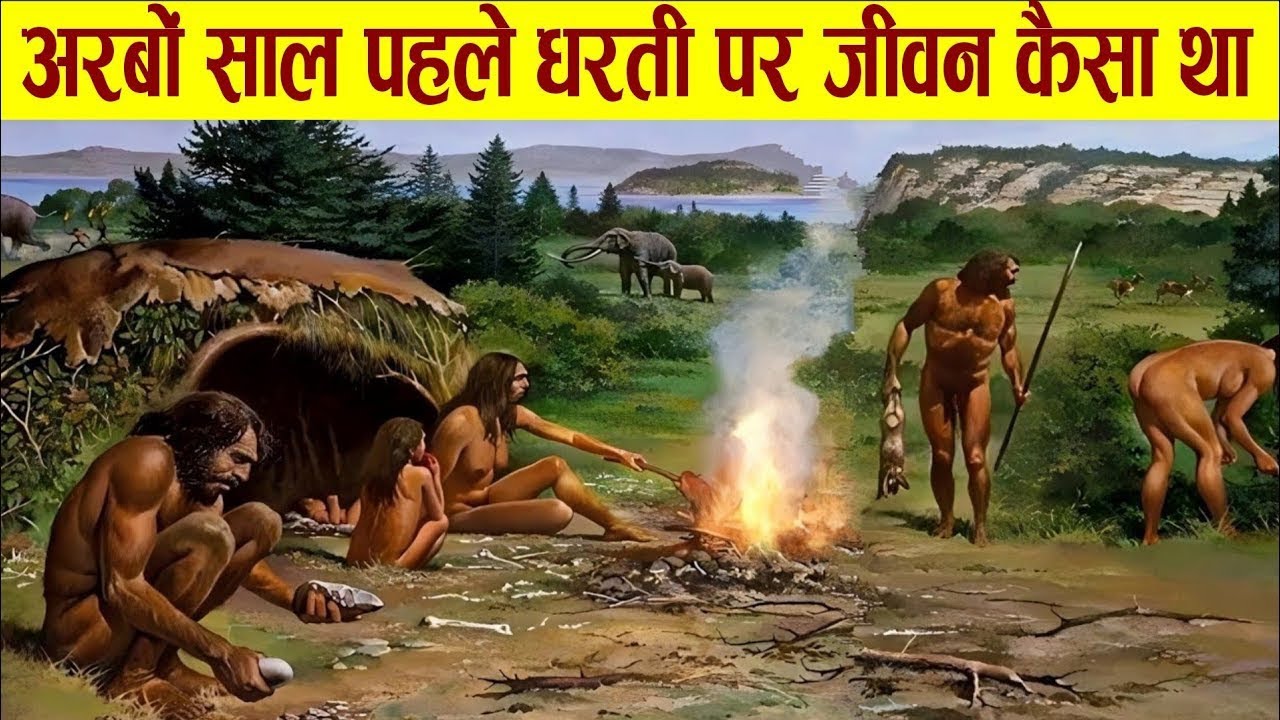Human Evolution in Hindi
धरती का आरंभ
दुनिया के लिए हमेशा से ही रहस्य का विषय नहीं है। हम आज इतनी वैज्ञानिक तरक्की के बावजूद भी हमारी धरती पर ऐसे कई रहस्य मौजूद हैं जिसका पता लगाना वैज्ञानिकों के लिए लगभग असंभव सा है।
🌍 धरती का आरंभ:
उत्पत्ति की कहानी
- धरती का जन्म: धरती की उत्पत्ति कैसे हुई यह एक बड़ा प्रश्न है जिसपर अज्ञात का पर्दा बना हुआ है।
- इंसान का आगमन: इंसान का आगमन कैसे हुआ, उसका इतिहास क्या है, और कैसे उसने पृथ्वी पर अपनी जगह बनाई, इस पर भी बहुत सवाल हैं।
🌐 विज्ञान और धर्म:
बहस और समझौता
- विज्ञान और धर्म का मेल: विज्ञान और धर्म दोनों ही मानव शरीर की रचना के पीछे तथ्य प्रदान करते हैं, लेकिन इनमें अंतर होता है।
- वैज्ञानिक बहस: विज्ञान और धर्म गुरुओं के बीच में इस मुद्दे पर बहस होती रहती है, जिसमें वैज्ञानिक तथ्यों की मान्यता का सवाल होता है।

🌱 मानव विकास:
आदिमानव से आधुनिकता
- पूर्वजों का जीवन: लाखों साल पहले धरती पर आये जीवों का जीवन कैसा था, उसमें कौन-कौन से प्राचीन जीवाणु और जंतुओं का राज था, इस पर चर्चा हो सकती है।
- प्रागैतिहासिक काल: धरती पर आए पहले मानवों का जीवन, उनका आदि-वासी जीवन और वन्यजीवन पर ध्यान देना महत्वपूर्ण है।
🚀 विकास का सफर:
प्रौद्योगिकी और सामाजिक परिवर्तन
- पहले आविष्कार: जंगली जानवरों का शिकार करने वाली प्रजातियों से लेकर, कई हजार साल पहले की प्राचीन साम्राज्यों तक का विकास का सफर।
- तकनीकी प्रगति: सिलसिला शुरू होने के बाद, विकास और आविष्कारों में कैसा सफर तय करता है, जैसे की चक्रवात, आग का आविष्कार, बनावटी हथियारों का उपयोग।

⏳ समय का पहिया:
मानव सभ्यता का विकास
- समय की कहानी: समय के साथ कैसे विकसित हुई मानव सभ्यता, उसके स
- 🌋 पहाड़ बनाए गए टेक्टोनिक प्लेट्स के टक्कर से माउंट एवरेस्ट बनी
- 🌍 पहाड़ों की ऊचाई के कारण मौसम में परिवर्तन हुआ
- ❄️ ऊचे पहाड़ों पर बर्फबारी और ठंडा मौसम हुआ
- 🌳 जंगलों में जीवों ने अपना अपना रूप लेना शुरू किया
- 🐒 आदिमानवों ने पेड़ों पर रहने का तरीका बदला
- 🛠️ पत्थरों से औजार बनाकर मांस पकाने की शुरुआत
- 🔥 आग का आविष्कार जीवन को बदला, मांस को पकाने में सहायक
- 🗣️ आवाज निकालने और बोलने की शुरुआत, भाषा का विकास हुआ
🌍 Human Evolution in Hindi: A Journey Through Time 🕰️
Introduction: Unlocking the Mysteries of Earth’s Past
🤔 A world full of mysteries has intrigued humanity for ages. Despite scientific advancements, Earth harbors enigmas challenging even the most brilliant minds. Common questions about the Earth’s origin, evolution, and the history of humanity often lead to debates between scientists and religious scholars.
The Dance of Science and Religion
🧪🕉️ Science and religion, each in its own way, provide insights into the creation of the human body. Questions about how humans came to Earth, the birth of our planet, the emergence of humans, and their history often remain unanswered, leading to ongoing debates between scientists and religious leaders.
The Marvel of Human Existence: Unraveling the Past
🌐 Ancient Earth: A Different Realm
🌳🦕 Millions of years ago, Earth was vastly different from today. Various species roamed freely, including giant creatures like dinosaurs that ruled the planet. Exploring the mysteries of human evolution requires delving deep into the Earth’s ancient past.
👣 The Arrival of Homo Sapiens
🚶♂️💭 Approximately 3.5 million years ago, a species appeared on Earth that was distinct from other creatures. These early humans, walking on two legs and slightly different from primates, marked the beginning of human evolution.
🛠️ Stone Age Innovations: Crafting Tools and Shaping Lives
⛏️🏞️ Around 2.5 million years ago, a significant shift occurred with the emergence of a species capable of crafting tools from stones. These early humans utilized these tools for hunting, a crucial step in shaping their way of life.
🔥 Harnessing Fire: A Pivotal Discovery
🔥🌍 The discovery of fire around 1 million years ago was a game-changer. It opened doors to warmth, protection, and the ability to cook food, altering the course of human development.
The Wheel of Time: Human Advancements Over Millennia
🌍 Migration and Exploration
🚶♀️🗺️ As time progressed, humans migrated across terrains, overcoming challenges. They navigated mountains, crossed rivers, and adapted to diverse environments, showcasing resilience and adaptability.
⛰️ Climbing Peaks and Crossing Waters
🏔️🌊 In the absence of modern transportation, ancient humans traversed vast distances on foot, climbing mountains and crossing rivers to explore and settle in new territories.
🔍 Discovering Resources: From Coal to Electricity
⛏️🔧 Around 500,000 years ago, humans discovered coal, a vital resource. This eventually led to the harnessing of electricity, a revolutionary development that transformed societies.
🌞 Sun Worship and Agriculture
🌾🌞 Some ancient cultures revered the sun as a deity, acknowledging its role in providing light and energy for plant growth. The understanding of photosynthesis laid the groundwork for agriculture.
The Cradle of Civilization: Unveiling Ancient Societies
🌐 Diverse Cultures and Sun Worship
🌅🏛️ As human societies evolved, diverse cultures emerged, some worshipping the sun as a deity. The sun’s rays not only provided light but also sustained life through photosynthesis.
📜 Civilization’s Dawn: From Hunter-Gatherers to Settled Communities
🏞️🏘️ Approximately 10,000 years ago, humans transitioned from a nomadic lifestyle to settled communities. This shift marked the dawn of civilization, with agriculture playing a central role.
📚 Advancements in Knowledge: From Telescopes to Understanding the Universe
🔭🌌 Scientific discoveries, such as the invention of the telescope, enabled humans to explore the cosmos. Understanding the universe became a pursuit that continues to captivate us today.
Epilogue: The Tapestry of Human Civilization
🌟📜 The journey of human evolution spans millions of years, weaving a tapestry of innovation, adaptation, and resilience. From humble beginnings to technological marvels, the story of humanity continues to unfold.
Frequently Asked Questions (FAQs)
Q1: What were the conditions on Earth millions of years ago?
🌏 Earth millions of years ago featured diverse species, including dinosaurs. Conditions were vastly different, with a higher temperature and darkened skies due to dust clouds.
Q2: How did early humans adapt to their environment?
🚶♂️ Early humans adapted through the development of tools, the discovery of fire, and the ability to migrate and explore different terrains.
Q3: When did agriculture begin, and how did it shape societies?
🌾 Agriculture began around 10,000 years ago, leading to settled communities and the dawn of civilization. It transformed societies by providing a stable food source.
Q4: What role did the sun play in ancient cultures?
🌅 The sun was revered in some ancient cultures as a deity, symbolizing light, warmth, and the source of energy for plant growth.
Conclusion: Reflecting on Our Extraordinary Past
🌐💡 As we reflect on the incredible journey of human evolution, it becomes evident that our history is a mosaic of innovation, curiosity, and the relentless pursuit of understanding the world around us. The quest for knowledge continues, shaping our present and guiding us into the future.
Note: The above article provides a simplified overview of human evolution, combining scientific and historical perspectives. For a more in-depth understanding, further exploration of specific topics is recommended.
- 🌍 Around 450 million years ago, tectonic plates collided, creating the Himalayas and Mount Everest, the world’s highest peak.
- ❄️ The formation of these mountains led to significant changes in Earth’s climate, introducing colder temperatures and snowy conditions.
- 🌿 In the distant past, Earth was dominated by diverse flora and fauna, evolving in response to changing environments.
- 🐒 The evolutionary journey includes ape-like creatures, like the Aps, who primarily lived in trees and adapted to their surroundings.
- 🌍 Over time, environmental changes and scarcity of resources led to the emergence of new species like the Australopithecus.
- 🛠️ Tool-making played a crucial role in the evolution of early humans, with the discovery of fire enhancing their ability to cook and process food.
- 🗣️ The development of language marked a significant milestone, enabling communication and complex interaction among early human groups.
- 🏞️ Human progress continued with innovations and discoveries, shaping the diverse cultures and civilizations that exist today.
